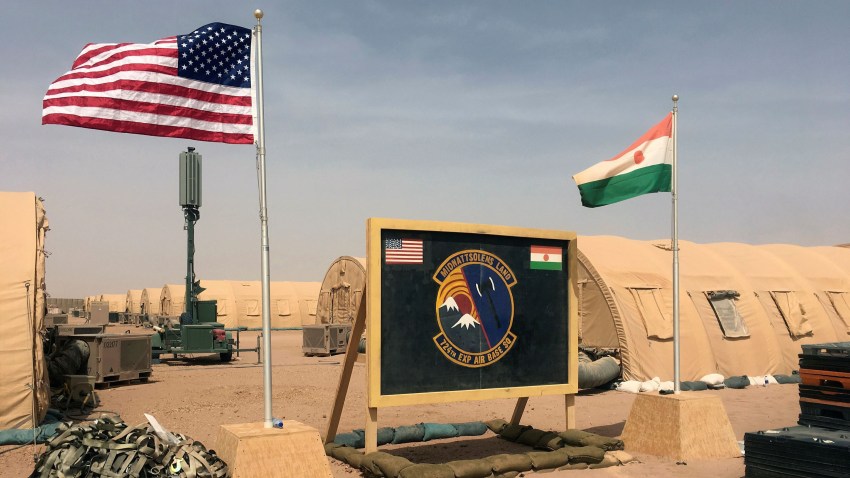The recent coup in Niger presents the United States with a familiar dilemma in how it conducts security cooperation assistance. The U.S. can take a principled stand in defense of constitutional democracy—and in defense of the notion that democracy is important for long-term security and stability—or pragmatically choose to hold its nose and work with putschists in Niamey. There is no easy solution, but current dynamics in the Sahel, which indicate that without outside help al-Qaida and Islamic State-affiliated groups will rapidly gain strength in the region, call for U.S. policymakers to pursue the latter, pragmatic course.
Jama’at Nusrat al-Islam wal Muslimin, or JNIM, Islamic State Sahel Province, or ISSP, and Islamic State West Africa Province, or ISWAP, are among the most operationally capable groups active on the continent. JNIM now controls much of Mali and approximately 40 percent of Burkina Faso, according to estimates by the U.S. government, and ISSP has been growing from strength to strength in Burkina Faso, Mali, and Niger. Attacks throughout the region have surged. Data analyzed by the Global Terrorism Index shows that the Sahel accounted for 43 percent of terrorism deaths globally in 2022, compared to just 1 percent of total deaths in 2007. France's departure from Mali last year gave a boost especially to the Islamic State group, and its likely departure from Niger will have a similar effect there.
In addition, the possibility that Russia is ready to fill a U.S. and French power vacuum by deploying Wagner Group mercenaries further argues for U.S. engagement in the region. Wagner is now active in an emerging corridor of coups, including in Sudan, Mali, and Burkina Faso. Niger may soon be next. Because Wagner’s assistance is purely transactional, without conditions related to human rights, it is an easy choice for the Sahel’s juntas. Wagner’s forces also appeal to junta leaders because they can use the mercenaries as their Praetorian Guard, while ostensibly working to combat jihadist groups operating throughout the region. Russia has prepared the ground for Wagner in the region with disinformation campaigns that stoke anti-Western, especially anti-French, sentiment. Few expect the death of Yevgeny Prigozhin to result in any disruptions to Wagner’s African operations.

